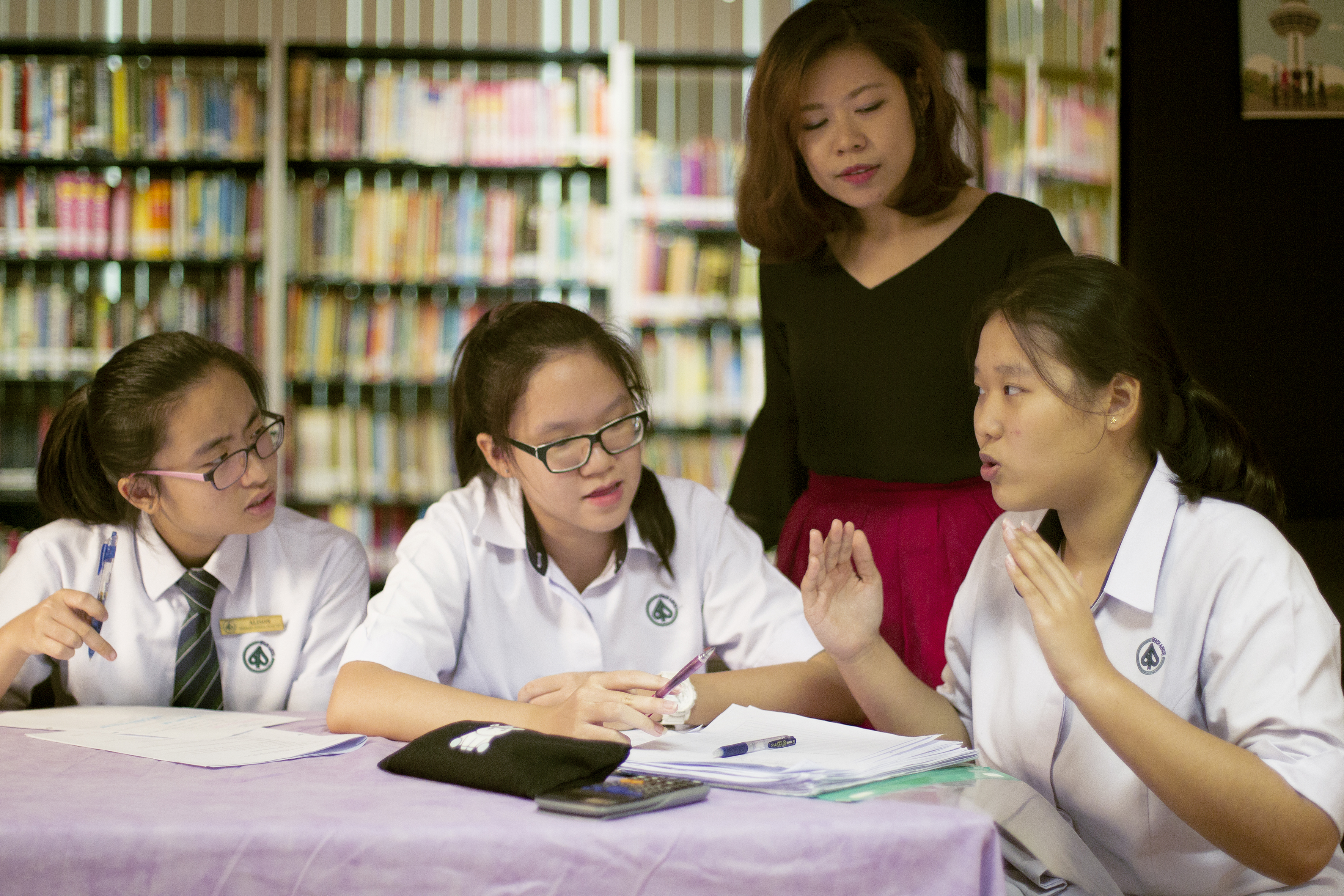Young Children’s Voices in Mathematical Problem Solving
Contributed by Dr Ho Siew Yin and Sng Wei Qin Abbie, from NTUC First Campus, for SingTeach Virtual […]
Read More
It is no surprise that highly effective teachers can have an enriching effect on students’ lives and their lifelong educational aspirations. Those teachers often possess a passion for the subjects they teach and are constantly exploring the different ways to better their classroom practices, an effort towards enhancing their students’ learning. Four teachers share with us how they continuously develop themselves for the benefits of their students.

Mr Colin Sim
Year Head (Secondary 3), Bowen Secondary School
“There is a deep wealth of pedagogical knowledge within the teaching fraternity and much of it is available to us almost every day – we can hone our craft through the open sharing of strategies and professional discussions with our colleagues. This vital exchange of knowledge contributes to both our development as an educator in the classroom and growth as a fraternity. There is also the need to be aware of the constant changes to the national and global landscapes, and consider how they will affect our students. This will help us to make the crucial connections from what we teach to the real-world and future-world applications, keeping our teaching current and relevant.”
Ms Nadiah Razni
Malay Language Teacher, Westwood Secondary School
“As a beginning teacher, I strongly believe that having a good class rapport is vital. Once the rapport is built, it is easier to manage the class and deliver an effective lesson. Students also tend to learn better in a student-centred lesson. Thus, it is essential to engage them by including collaborative learning, physical movements and visual representations during lessons. This will also cater to the different types of learners. Lastly, it is important for us educators to continuously learn. Obtaining a degree is not the end of a learning journey; you have to constantly update yourself with current pedagogies that shape young minds by attending various courses and learning from your colleagues. Ultimately, the key indicator of an effective classroom teaching is the ability to monitor students’ improvement progressively.”
Mr Jeremy Shiu
Lecturer, Institute of Technical Education (College West)
“ITE students are kinaesthetic, visual and technically-inclined learners. To get the best out of them, we often engage our students through various ways including using visual aids, videos and games. It is sometimes challenging for our lecturers to create all these resources on their own. Hence, it makes perfect sense that teachers collaborate, and share resources and new ideas among ourselves. Generally, our students will display greater interest in the classroom when the settings are more authentic and they can relate to the contents on a personal basis. Theoretical concepts are sometimes abstract and irrelevant; thus, I will present real-life examples such as case studies and realistic data to capture their attention and focus. Attending professional courses, focus group discussions and seminars regularly also allow me to stay in touch closely with the industry.”
Mrs Jusuf Leow Hui Mei
Teacher, North Vista Primary School
“There are two things that I find is key to better teaching. First, learning from within. Living in this time-starved era/profession, it is important to put aside some time to discern the vital few from the trivial many. As such, I make it a point to make time daily for personal reflection and brainstorm on how to improve myself. I also keep a record of all these reflections in a journal for easy review whenever needed. Second, learning from others (colleagues). It is crucial to also create space during curriculum regularly for conferencing with fellow colleagues. We conduct scheduled peer lesson observations to gather thoughtful and explicit evidences of teaching. I could gain meaningful feedback on how to improve and or expand teaching strategies and practices. Observers of my lessons may generate different instruction modes or teaching approaches from the ones I made, and such interactions and discussions with my colleagues help me to develop a repertoire of teaching competencies.”
Subscribe to our newsletter to receive the latest information about our articles and events. Email us at sgteach@nie.edu.sg for assistance.
On topics related to teaching and learning, we invite you to contribute articles that focus on the following:
We welcome contributions that explore how educators are shaping the future of learning in a rapidly changing world marked by technological advancements and global challenges.
If you have a classroom or education research story to share, we invite you to send in your contribution articles.
Submit your contribution here:
SingTeach complies with the Personal Data Protection Act 2012 of Singapore
For questions, please contact the editorial team: sgteach@nie.edu.sg
